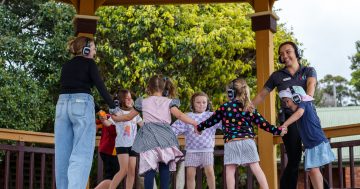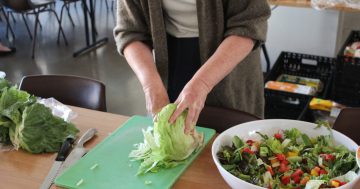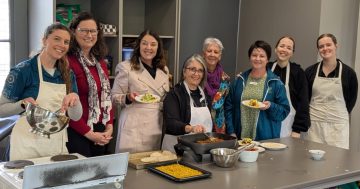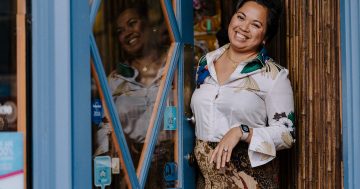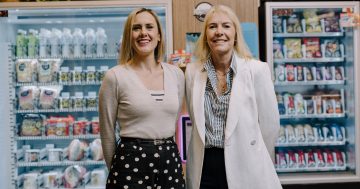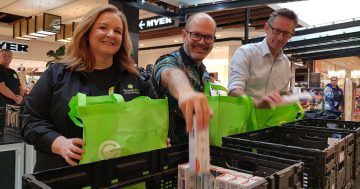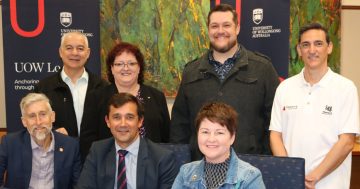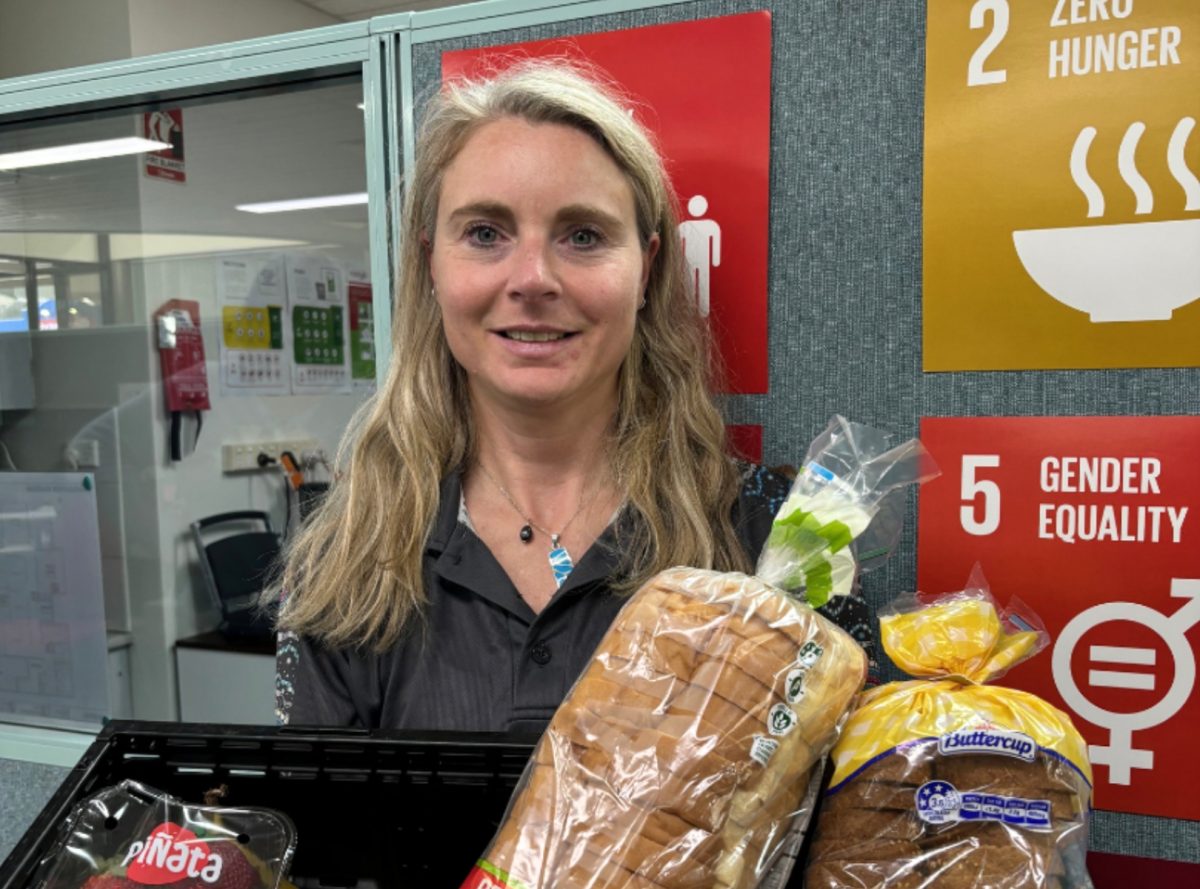
Healthy Cities Illawarra’s new food donation coordinator Elke Cummings. Photo: Supplied.
Healthy Cities Illawarra has secured funding to divert food from landfill and provide relief to Illawarra families at a time when the nation is facing unprecedented levels of food insecurity.
The $434,630 Food Rescue Grant from the NSW Environment Protection Authority (EPA) has enabled the employment of regional food donation coordinator Elke Cummings, who will lead a three-year program to reduce food waste and support charities and community centres in their efforts to assist food insecure families.
“Part of the funding was to bring me on so I could coordinate food rescue in the Illawarra region and to promote and prevent food from going into landfill,” Elke said.
“It’s also to bring different agencies together in making that happen.”
In the first grant round, the Labor Government has given out nearly $3 million to organisations that can make the most impact to reduce the 1.7 million tonnes of food wasted each year in NSW.
CEO Kelly Andrews said Elke would coordinate workshops and education for donors, establish communication systems to streamline donations, and work on logistics to ensure food was delivered to the charities that provide food relief.
“It’s an issue everywhere, with the cost-of-living crisis and not having a chance to recover from COVID,” Kelly said.
“We’ve seen food insecurity increase to new levels where families are presenting and needing food relief for the first time. It’s a significant issue.
“The other interesting thing is there seems to be a proliferation of increasing amounts of unhealthy food outlets, and we’ve reached this tipping point where food insecurity, if it’s defined as enough access to healthy and affordable food, is actually starting to shift.
“Unhealthy food is arguably a lot more accessible and cheaper.”
Kelly said the new role would support work already done through Food Fairness Illawarra, which was a coalition started 15 years ago, bringing together like-minded organisations to look at food insecurity and how to build a sustainable, healthy food system.
She said it was an advocacy and education arm founded by Healthy Cities Illawarra, the University of Wollongong, Wollongong, Shellharbour and Kiama councils and the local health district.
“Food Fairness actually piloted this role about 18 months ago with some EPA funding,” Kelly said.
“It was a short pilot – about eight months – but we did demonstrate there was value in having a role to bring all the players together to have a more coordinated, streamlined approach to increasing food donations and keeping it out of landfill.
“It had the dual purpose of getting more edible, healthy foods to the charities or the community centres that are feeding hungry families.”
However, Kelly stressed that being early days, they weren’t able to deal with a rush of donations.
“It’s in its formative stages, but it’s a real win for the region in terms of the environmental and social impact we hope it will have,” she said.
“Part of the puzzle is figuring out whether the region needs more refrigerated storage, what are the barriers to collecting it logistically, and then also getting it out there.”
Elke said she had already begun working with food rescue organisation OzHarvest to learn about Illawarra’s needs, along with Warrawong Community Centre, which provided food hampers weekly and lunch three days a week with the food rescued from OzHarvest.
She said the other key player it was looking to work with was the Homeless Hub.
Minister for Climate Change and the Environment Penny Sharpe said across NSW up to 70 per cent of wasted food was still edible.
“It’s not about just reducing waste but rethinking how we value and use the food we have,” Ms Sharpe said.
“This funding will help food rescue charities by giving them better infrastructure to take more donated and rescued food.”
Grants will be used to enhance and expand food rescue infrastructure, helping organisations to buy bigger trucks and fridges and employ more people to save edible food and feed the vulnerable in NSW.
To learn more, contact Elke on (02) 4283 8111.









